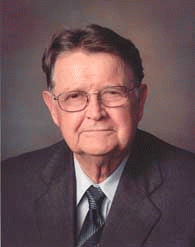From Groundswell Newsletter - a publication of Common Ground-USA, Jan-Feb. and May-June, 2011. http://commonground-usa.net/)
"We soon discovered ... the danger of allowing economic policy to be dominated by business or financial interests or, which usually comes to the same thing, orthodox economic analysis" - economist Ray Marshall, Secretary of Labor, 1977-81, in Unheard Voices, 1987, p.ix
Privatization bias from an early date
There are such exciting headlines every day, it is easy to forget yesterday's. Do you remember much about last summer's Deep Horizon oil spill in the Gulf of Mexico? BP and various Federal agencies probably hope not. Do you remember the Exxon Valdez disaster in Bristol Bay? Not likely, unless you live there. Still, courts and regulators turn to economists to fashion remedies and preventives. When your children, and future jurists and regulators and legislators study economics in college, how do their mentors prepare them to act?
In the last 60 years or more they have dipped into pollution issues, even plunged, yet these accidents keep happening, huge ones that make headlines, plus a stream of lesser and routine ones. The Exxon Valdez victims are still waiting to recover damages, which the courts have whittled down over the years. The overall world environment seems to be worsening slowly but inexorably, from a thousand polluters, each too small to control. What do "mainstream" professors say about all that? They say a lot nowadays, hemming and hawing professorially, but what would they have us do? "Statesmen wise, Privatize!" has been their main theme for many years now.
The idea of private property as a panacea had been around a long time before Garrett Hardin popularized his "lifeboat theorem" (throw newcomers overboard before they sink the boat). The von Mises Institute, American Enterprise Institute, CATO Institute, and a dozen more directed-thinking tanks that major rent-takers and polluters fund, got behind Peruvian Hernando de Soto to clean up the favelas by privatizing their land. Rev. Thomas Malthus, of course, had given his name and a patina of Christian piety to such views back around 1800. Arthur Young, 1741-1820, was a leading proponent of the (3rd or 4th) enclosure movement in England. His catchphrase, "The magic of property turns sand into gold", was common coin for years before Hardin trumped it with "The Tragedy of the Commons". Truth struck to earth will rise again, they say, but so, alas, will error, and every generation must think this through on its own.
Pardon this writer now for mixing personal reminiscences with other history, for I got involved in several of these issues from the beginnings of my career in the 1950s, and can report on what I saw and experienced. A group of fisheries economists were among those reviving the issue following Scott Gordon, 1954. Fisheries are like an open range, so they said, that will be ruined by overuse unless interlopers are fenced out by limiting and privatizing licenses to fish in certain areas. So, by simile, must we protect other wild creatures (ferae naturae), waters, the air, radio spectrum, public roads, public schools and libraries, airlanes, harbors, parking spaces, and you name it, a long list. There is a lot of truth in it, making some sense to economists schooled in diminishing marginal productivity.
Handled skillfully it seems consistent with Ricardo's law of rent. Henry George himself had upheld the important role of secure tenure to land. It swept all before it. Economists in the same vein included Francis Christy, Jr., Giulio Pontecorvo, Parzifal Copes, Anthony Scott, "Reds" Wolman, and others. In Chesapeake Bay it was a good thing that organized "Watermen" had divvied up shellfish beds, overriding the public trust doctrine and keeping them from shooting each other and extincting all the soft-shelled crabs.
Next Page 1 | 2 | 3 | 4 | 5 | 6 | 7 | 8 | 9 | 10 | 11
(Note: You can view every article as one long page if you sign up as an Advocate Member, or higher).






